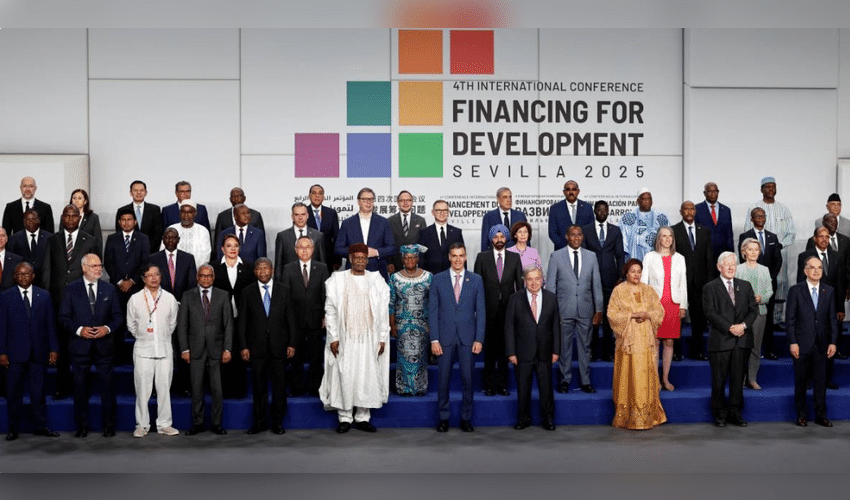World
Global leaders commit to advancing development efforts while the US skips the UN summit.

A rare, once-in-ten-years summit began on Monday (June 30) in Seville amid intense heat, with world leaders facing mounting pressure to tackle poverty, curb climate change, and meet key development goals that are increasingly under threat. UN Secretary-General António Guterres described the summit as an effort "to repair and revitalize" a global system suffering from eroding trust and weakening multilateral cooperation.
The conference's most conspicuous absentee was U.S. President Donald Trump. The U.S., historically the world’s largest donor, declined to attend and refused to support the summit’s action plan that took a year to negotiate. France’s President Emmanuel Macron criticized Trump’s stance, labeling the U.S.-led trade war as “nonsensical” in a time of global crisis. A notable early announcement at the summit included a plan by countries like Barbados, Kenya, France, and Spain to introduce new taxes on private jets and first-class airline travel.
Addressing delegates enduring Spain’s scorching heatwave, Guterres said the “Seville Commitment” represents a global pledge to reform how the international community aids poorer nations. Agreements reached before the summit include plans to triple the lending power of multilateral banks, provide debt relief, boost tax-to-GDP ratios to a minimum of 15%, and reallocate IMF funds to countries in greatest need.
Macron urged institutions like the World Bank to consider sacrificing their perfect credit ratings if that’s what it takes to achieve meaningful development outcomes. “Development banks focused solely on preserving their triple-A status without using financial guarantees are mistaken,” he said. “They must leverage their full capacity.”
System Reform Needed: With two-thirds of the UN’s Sustainable Development Goals off track and a funding gap exceeding $4 trillion annually, Guterres called for a rapid overhaul of the global financial system. He emphasized the need for countries to strengthen domestic tax systems and for development banks to lend more and attract private investment.
Another key issue is reforming the global credit rating system, which Guterres argued must become fairer to developing countries striving to fund improvement projects. He stressed the need for a new, transparent single debt registry and initiatives like debt swaps to reduce borrowing costs. “Countries deserve a financial system that lowers interest rates, enables fair and timely debt restructuring, and prevents debt crises from happening,” Guterres concluded.



